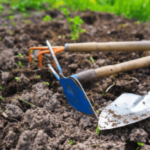The widespread use of plastic has led to a crisis affecting our environment, health, and wildlife. With an estimated 8 million tons of plastic waste entering our oceans each year, the urgency of adopting a plastic-free lifestyle is becoming more apparent. This surge in plastic pollution harms marine ecosystems, clogs landfills, and, due to microplastics, even finds its way into our food and water. Transitioning to a plastic-free lifestyle may seem daunting, but small, intentional changes can make a significant impact. By focusing on reducing, reusing, and choosing sustainable alternatives, we can collectively lessen our plastic footprint and contribute to a healthier planet.
In this guide, we’ll explore practical steps to reduce plastic use in daily life, providing a roadmap for anyone looking to make eco-friendly changes that benefit both the environment and personal well-being. Embracing a plastic-free lifestyle is not about perfection, but about making conscious choices that bring us closer to a sustainable future.
Start by Reducing Single-Use Plastics
Single-use plastics are among the most prevalent sources of plastic pollution. Items like plastic bags, straws, bottles, and utensils are designed to be used once and discarded, yet they take hundreds of years to break down. Reducing reliance on these items is one of the simplest and most impactful ways to minimize plastic waste.
Switch to Reusable Bags and Containers
Investing in reusable bags and containers is an easy first step toward reducing plastic use. Keep cloth or canvas bags in your car or at home for shopping, and consider small produce bags for fruits and vegetables. For storage, swap plastic containers for glass, stainless steel, or silicone options. Reusable containers not only cut down on plastic waste but also tend to last longer, making them a cost-effective choice over time.
Say No to Plastic Bottles and Straws
Plastic water bottles and straws are some of the most common single-use plastic items. Replace plastic bottles with a reusable stainless steel or glass water bottle, which can be filled at home or at refill stations. For those who enjoy using straws, consider carrying a reusable metal, bamboo, or silicone straw that can be easily cleaned and carried on the go. By making these swaps, you’re eliminating unnecessary plastic waste that often ends up in the environment.
Opt for Eco-Friendly Utensils and Tableware
Takeout meals and fast food often come with plastic utensils, cups, and plates. To avoid these, keep a set of reusable cutlery, a collapsible cup, and even a portable container for takeout. Many companies now offer biodegradable or compostable tableware options that break down much faster than traditional plastics, making them a great alternative for gatherings or outdoor events.
Make Conscious Choices at the Grocery Store
Supermarkets are filled with plastic packaging, from produce bags to shrink-wrapped items. Reducing plastic use in your shopping routine requires a bit of planning and mindfulness, but it’s an impactful way to reduce plastic waste over time.
Choose Loose Produce and Bulk Foods
Instead of reaching for pre-packaged fruits and vegetables, opt for loose produce. Many stores offer bulk sections where you can bring your own containers or use provided paper bags. This approach not only minimizes packaging waste but also allows you to buy the exact amount you need, reducing food waste as well. For items like grains, nuts, and spices, bulk bins are a fantastic option that can significantly cut down on single-use plastics.
Avoid Products with Excessive Packaging
Some products, such as individually wrapped snacks or pre-portioned items, contribute heavily to plastic waste. When possible, choose items with minimal packaging, or make your own snacks and meals from scratch. Additionally, consider buying products packaged in glass, paper, or metal, as these materials are often recyclable and have a lower environmental impact compared to plastic.
Support Brands Committed to Sustainability
As awareness of plastic pollution grows, more brands are adopting eco-friendly packaging and production practices. Support companies that use biodegradable, compostable, or recyclable packaging. Many businesses, particularly those specializing in natural or organic products, are leading the way in sustainable packaging. By choosing to purchase from brands dedicated to reducing plastic, you’re encouraging positive change in the industry.
Adopt Sustainable Habits at Home and Work
Making your home and workplace more sustainable goes beyond just reducing plastic; it’s about cultivating habits that support a long-term eco-friendly lifestyle. From cleaning supplies to personal care products, there are plenty of ways to minimize plastic in everyday routines.
Use Plastic-Free Cleaning Products
Many household cleaning products come in plastic bottles, but there are alternatives that reduce plastic waste. Look for cleaning supplies in sustainable packaging or brands that offer refillable bottles. You can also make your own cleaning solutions using simple ingredients like vinegar, baking soda, and lemon. These natural cleaners are effective, affordable, and eliminate the need for plastic containers.
Switch to Plastic-Free Personal Care Products
Plastic packaging is ubiquitous in personal care products such as shampoo, toothpaste, and deodorant. However, there are now a growing number of eco-friendly alternatives, like shampoo bars, toothpaste tablets, and deodorants in cardboard tubes or glass jars. These products provide the same benefits as conventional products but without the environmental cost of plastic waste.
Consider Eco-Friendly Home Upgrades
Incorporating sustainable changes at home can reduce both plastic use and energy consumption. Items like energy-efficient appliances, water-saving showerheads, and LED lighting help create an eco-friendly living space. Additionally, try to use reusable cloths instead of paper towels and plastic sponges, or invest in compostable alternatives for cleaning. Even small changes, such as switching to cloth napkins, can make a difference over time.
Practice Proper Recycling and Composting
Recycling is an important part of managing plastic waste, but it’s essential to recycle properly to ensure effectiveness. Many people unintentionally contaminate recycling streams by placing non-recyclable items in the bin, which can lead to more waste ending up in landfills. Composting is another excellent practice to reduce waste, as it diverts food scraps and other biodegradable materials from the landfill.
Know What Can and Cannot Be Recycled
Understanding what is accepted in your local recycling program is crucial for effective recycling. Common items like plastic bottles and aluminum cans are widely accepted, but certain plastics, such as plastic bags or styrofoam, often require specialized facilities. If you’re unsure, check with your local waste management company or look up guidelines to avoid “wish-cycling”—the act of placing items in the recycling bin in the hope they’ll be recycled.
Start Composting Food Waste
Composting food scraps reduces waste while creating nutrient-rich soil for gardening. Food waste that ends up in landfills decomposes without oxygen, producing methane, a potent greenhouse gas. Composting, on the other hand, reduces methane emissions and creates valuable compost for plants. Many compost bins are designed for small spaces, so even if you live in an apartment, you can still start a composting routine.
Find Alternatives for Hard-to-Recycle Plastics
Some plastics, like grocery bags or packaging materials, aren’t accepted in standard recycling programs. However, many stores offer drop-off bins for plastic bags and other flexible plastics. Research recycling centers or programs that accept specialized plastics in your area. By taking the extra step to recycle these items, you can prevent them from polluting the environment.
Conclusion: Creating a Sustainable, Plastic-Free Lifestyle
Transitioning to a plastic-free lifestyle is a journey that begins with small, manageable changes. By gradually adopting eco-friendly habits, from avoiding single-use plastics to choosing sustainable alternatives in personal care and household products, you can reduce your reliance on plastic without feeling overwhelmed. Living with less plastic not only benefits the environment but also simplifies life, encouraging mindful consumption and sustainable choices.
As more people make the shift to plastic-free living, our collective efforts can drive substantial change, reducing plastic pollution and promoting a healthier planet. Remember, every small step counts, and your commitment to reducing plastic use inspires those around you to do the same. Embrace the challenge of plastic-free living, knowing that each decision brings us closer to a cleaner, greener future for generations to come.










